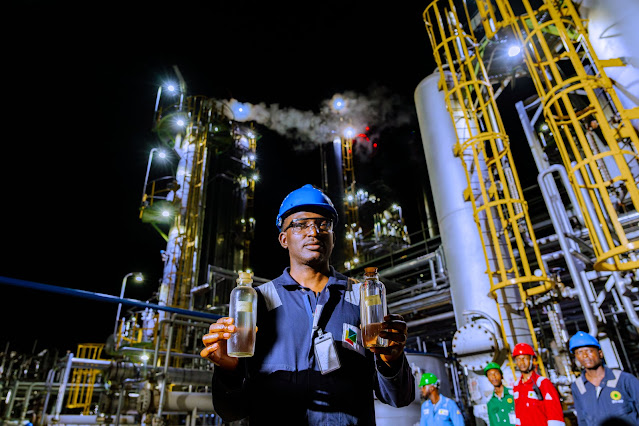NNPC Ltd Reaffirms Progress on Port Harcourt Refinery and Addresses
Misleading Claims
CHIGOZIE AMADI
The Board and Management of the Nigerian National Petroleum Company Limited
(NNPC Ltd.) express heartfelt appreciation to Nigerians for their support and
excitement over the safe and successful restart of the 60,000 barrels-per-day Old
Port Harcourt Refinery. This achievement marks a significant step forward after
years of operational challenges and underperformance.
We are, however, aware of unfounded claims by certain individuals suggesting that
the refinery is not producing products. For clarity, the Old Port Harcourt Refinery
is currently operating at 70% of its installed capacity, with plans to ramp up to 90%.
The refinery is producing the following daily outputs:
Straight-Run Gasoline (Naphtha): Blended into 1.4 million liters of Premium
Motor Spirit (PMS or petrol)
Kerosene: 900,000 liters
Automotive Gas Oil (AGO or Diesel): 1.5 million liters
Low Pour Fuel Oil (LPFO): 2.1 million liters
Liquefied Petroleum Gas (LPG): Additional volumes
It is worth noting that the refinery incorporates crack C5, a blending component
from our sister company, Indorama Petrochemicals (formerly Eleme
Petrochemicals), to produce gasoline that meets required specifications. Blending
is a standard practice in refineries globally, as no single unit can produce gasoline
that fully complies with any country’s standards without such processes.
Additionally, we have made substantial progress on the new Port Harcourt
Refinery, which will begin operations soon without prior announcements.
We urge Nigerians to focus on the remarkable achievements being realized under
the able and progressive leadership of President Bola Tinubu, GCFR, and to support
efforts aimed at delivering more dividends to the nation. Malicious attacks on clear
progress only undermine the significant strides made by NNPC Ltd. and the
country.
Let us move forward together in building a stronger and more self-sufficient
energy sector.

























